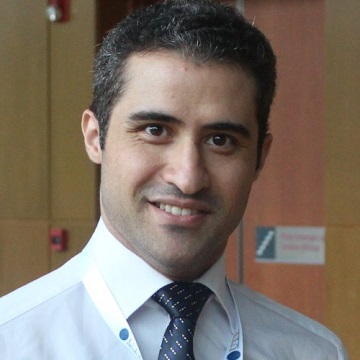Scientific Program

Omid Akbarzadeh
University of Malaysia, Malaysia
Biography:
Omid Akbarzadeh is working with Nanotechnology and Catalysis Research Centre since 2016. His main research area is heterogeneous catalysis and catalytic reaction engineering. He has spent 10 years in academic-industrial projects as a research officer and post-doctoral. Omid has worked 5 years in the oil and gas industry as a chemical engineer. He developed advance smart catalysts especially for oil and gas industries. Omid has contributed to two PETRONAS Research Sdn Bhd industrial catalyst projects and worked on international Airbus R&D project in NANOCAT. Currently, he is the PI of graphene catalyst project in Hokkaido University in Japan, project member of FRGS grant in UTP and assigned to the NANOCAT center project. Dr. Omid was the Chairman, keynote speaker and organizing committee of many international conferences. He is currently supervisor of a few postgraduate students. He has published many ISI papers; book chapters and has two approved and granted patents. Also, he has hands-on experience and passed several pieces of training on handling different types of equipment which are being widely used for material synthesis, characterization and performance evaluation. He is in close collaboration with other departments, government agencies and universities around the world. He is visiting researcher of Jiangsu University China and Hokkaido University Japan. He is member of the society of petroleum engineers (SPE) and Senior Member of Hong Kong Chemical, Biological & Environmental Engineering Society. Omid awarded full fellowship from UTP during Ph.D and were involved for lab demonstrator and teaching in the different courses of chemical engineering. He awarded Silver Medal in 27th International Invention & Innovation Exhibition (ITEX 2016), Kuala Lumpur Convention Center in Malaysia and Silver Medal of Post Graduate Research Project in 35th Science & Engineering Design Exhibition (SEDEX 35).
Abstract
Pre-treating the multi-walled carbon nanotubes (CNTs) support by refluxing in 35 vol% nitric acid followed by heating at the temperature of 600 to 900 °C resulted in the formation of defects on the CNTs. Increasing the temperature of the pre-treatment of the CNTs from 600 °C to 900 °C, enhanced the fraction of cobalt-oxide nanoparticles encapsulated in the channels of CNTs from 31% to 70%. The performance of Co/CNTs in Fischer-Tropsch synthesis (FTS) was evaluated in a fixed-bed micro-reactor at a temperature of 240 °C and a pressure of 2.0 MPa. The highest CO conversion obtained over Co/CNTs.A.900 was 59% and it dropped by 3% after 130 h of time-on-stream. However, maximum CO conversion using Co/CNTs.A.600 catalysts was 28% and it decreased rapidly by about 54% after 130 h of time-on-stream. These findings show that the combined acid and thermal pre-treatment of CNTs support at 900 °C has improved the stability and activity of the Co/CNTs catalyst in FTS.
- Nanoelectronic Biosensors
- Lab-on-a-chip & Multiplexed sensors
- Microfluidics & Bio-MEMS/NEMS
- Commercial biosensors & manufacturing
- Nucleic acid-based sensors
- Transducers & Photonic Sensor
- Printed biosensors and microfabrication
- Whole cell- and organ-based biosensors
- Enzyme-based biosensors
- Wireless Sensor Networks
- Bioelectronics and Bioinstrumentation
- Optical Chemical Sensors

